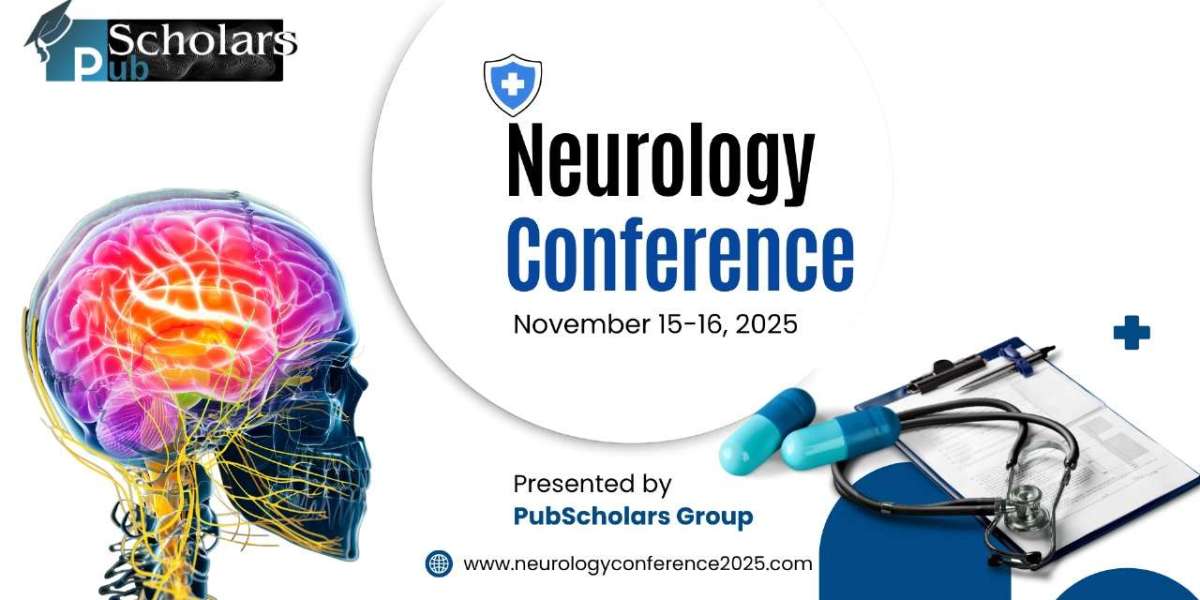Brain health is integral to overall well-being — not just for physical functionality, but also for mental and emotional stability. Neurological disorders can dramatically alter how individuals think, feel, behave, and interact with others. With growing awareness globally, events such as the International World Neurology Conference 2025 are leading the charge in promoting education and research into the connections between brain function and mental health.
Understanding the profound relationship between neurological disorders and mental health is critical in delivering comprehensive care. This article examines how various brain disorders influence mental health, drawing from the latest medical research and global health insights.
What Are Brain Disorders?
Brain disorders are any conditions that affect the structure or function of the brain. They may be genetic, degenerative, traumatic, infectious, or vascular in origin. These include:
Alzheimer’s disease
Parkinson’s disease
Epilepsy
Multiple sclerosis
Brain tumors
Stroke
Traumatic brain injury
These disorders disrupt communication within the nervous system, often leading to both physical and psychological symptoms.
Mental Health: A Fundamental Element of Brain Health
Mental health encompasses our emotional, psychological, and social well-being. When neurological pathways are damaged or disrupted, symptoms such as anxiety, depression, mood swings, and cognitive decline can emerge. As the Neurology Conference 2025 will highlight, mental health symptoms are often early indicators or complications of neurological disease.
Mechanisms That Link Neurological Disorders and Mental Health
1. Neurochemical Imbalances
Neurotransmitters like serotonin, dopamine, and norepinephrine play major roles in mood and cognition. When disrupted by a brain disorder (e.g., dopamine loss in Parkinson’s), patients frequently experience mental health symptoms such as:
Depression
Apathy
Anxiety
2. Inflammation and Neurodegeneration
Chronic inflammation in conditions like Alzheimer’s and MS can lead to gradual neuron death, resulting in mood and cognitive changes. Patients might show signs of:
Irritability
Memory loss
Emotional numbness
3. Structural Brain Damage
Traumatic injuries or strokes may directly affect brain regions responsible for emotional regulation (e.g., the frontal lobe), leading to:
Impulsivity
Aggression
Emotional instability
4. Psychosocial Stress
The daily challenges of living with a neurological disorder—mobility limitations, pain, or social stigma—can take a psychological toll. This often results in:
Low self-esteem
Isolation
Chronic stress
How Specific Brain Disorders Affect Mental Health
Alzheimer’s Disease
Mental Effects: Depression, paranoia, confusion, and anxiety.
Impact: As memory deteriorates, many patients become frightened and disoriented, which fuels emotional distress.
Parkinson’s Disease
Mental Effects: Depression (up to 50% of patients), anxiety, sleep disorders.
Impact: These symptoms are often more disabling than motor issues and may appear even before diagnosis.
Epilepsy
Mental Effects: Depression, anxiety, attention difficulties, and in some cases, psychosis.
Impact: Social stigma and fear of seizures can lead to withdrawal and suicidal ideation.
Multiple Sclerosis (MS)
Mental Effects: Depression, fatigue-related apathy, cognitive fog.
Impact: MS-related fatigue can be physically and emotionally debilitating.
Stroke
Mental Effects: Post-stroke depression, mood swings, and emotional incontinence.
Impact: Sudden loss of physical and cognitive function drastically affects confidence and mental health.
Pediatric Neurological Disorders and Emotional Well-Being
Children with neurological issues like ADHD, autism spectrum disorder, or cerebral palsy often struggle with:
Social interaction
Learning difficulties
Behavioral challenges
These can evolve into anxiety, depression, and behavioral disorders if not addressed early. As emphasized in AboutKidsHealth, early intervention is essential for long-term mental wellness.
The Vicious Cycle: Mental Illness Worsening Neurological Health
It’s important to recognize that poor mental health can also worsen neurological symptoms. For example:
Anxiety can exacerbate seizure frequency in epilepsy.
Depression may reduce motivation for Parkinson’s patients to take medication or exercise.
Chronic stress raises cortisol levels, which negatively affect brain health.
Clinical Research and Global Insight
According to the NCBI’s “Neurological, Psychiatric, and Developmental Disorders”, mental health conditions and brain disorders often coexist and share overlapping risk factors, such as:
Genetics
Prenatal complications
Substance use
Infections
Moreover, the NCD Alliance highlights how mental and neurological health are inseparable components of non-communicable diseases (NCDs), urging global health systems to treat them together, not separately.
Managing Mental Health in Neurological Patients
1. Integrated Care Models
Multidisciplinary teams (neurologists, psychiatrists, psychologists) work together to address both neurological and mental symptoms.
2. Cognitive Behavioral Therapy (CBT)
CBT helps patients cope with the emotional distress caused by progressive neurological symptoms. Especially effective for MS and epilepsy.
3. Medication and Monitoring
Antidepressants, mood stabilizers, and anxiolytics may be necessary alongside standard neurological medications. Monitoring side effects is crucial, as some drugs can worsen mental health symptoms.
4. Neurorehabilitation
Rehabilitation therapies such as occupational, speech, and cognitive therapy can improve both functional and emotional outcomes.
5. Family and Caregiver Support
Caregivers are at high risk for burnout and mental illness themselves. Family support and psychoeducation improve outcomes for both patients and caregivers.
The Role of Global Conferences in Awareness and Collaboration
The International World Neurology Conference 2025 is an excellent platform to address these complex, interlinked issues. Researchers, clinicians, students, and policymakers will gather to discuss:
Latest findings in brain and mental health research
Technological innovations for early detection
Best practices in integrated care models
Mental health support tools for neurological patients
Interested participants can register here to be part of this transformative dialogue.
Breaking the Stigma
One of the biggest barriers to proper care is stigma — surrounding both brain disorders and mental health. Breaking this stigma requires:
Public education campaigns
More conversations in schools, workplaces, and communities
Empathy-driven medical practice
Conferences and forums that prioritize these discussions, such as the Neurology Conference 2025
Conclusion
Brain disorders and mental health conditions are tightly interconnected. Ignoring the mental health implications of neurological diseases leads to incomplete care and poorer outcomes. By understanding how these conditions interact, and promoting integrated care, we can improve the lives of millions affected by brain disorders.
As the medical world advances, collaboration and continuous education — such as through the International World Neurology Conference 2025 — remain key to building a future where brain health includes mental health.




